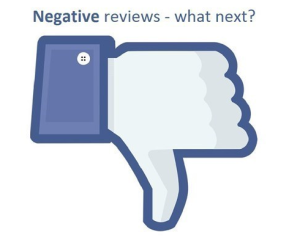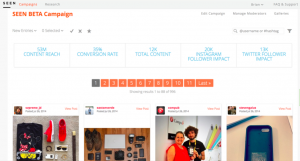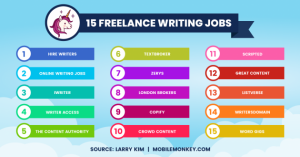Research can go a long way toward helping writers craft compelling content, but subject matter expert (SME) interviews help writers take their material to the next level.
Here are seven tips for ensuring that you interview subject matter experts well so you can create engaging inbound marketing content that converts.
1. Practice Makes Perfect
I’m 36 and began my career working as a reporter, a role I kept for 6.5 years. During that time, I interviewed hundreds of people, including Senator Joe Lieberman (Conn.), Yankees ace closer Mariano Rivera, and Chris Frantz, the drummer of the Talking Heads.
After my news gig, I moved to the copywriting world in 2013 and have continued interviewing people since then. Interviews have become second nature to me.
Interviewing SMEs is like anything else: Practice makes perfect. If you’re new to interviewing, know that you won’t become a pro overnight. But you can continuously improve as you get more comfortable having these kinds of conversations. I’m still figuring out new ways to take notes and ask questions after more than 13 years of interviewing for a living.
2. Prepare for the Interview
Different interviews call for different levels of preparation. If you’re comfortable with the subject matter and your interviewing skills, you might not need to spend a ton of time preparing for the interview. On the other hand, if you don’t know the person you’re speaking with and don’t know the subject matter at all, you’ll need to spend more time prepping.
Here are a few tips to prepare you for the interview:
You don’t have to be the topical expert. In fact, the person you are talking to will expect you to not be an expert—that is why you’re interviewing them in the first place. So, don’t feel like you need to know everything. (On the other hand, they will expect you to be the expert on interviewing.)
Come with questions. The more questions you come to an interview with, the easier it will be to extract the information you need to create great content. This doesn’t mean you have to spend hours coming up with the right questions. Many questions can be “templated.” For example, case study interview questions will often look like this:
- What was the problem that led you to look for a new solution?
- What X things were you looking for in a new solution?
- What other options did you consider?
- What were the results?
Beyond these kinds of questions, I always try to come to an interview with at least two or three “next-level” questions that I think the person I’m interviewing will find interesting. Think of these as very specific questions that will make the interviewee see the subject matter in a way they might not have before. As the conversation becomes more engaging, it could encourage them to reveal more detailed information than the above questions might uncover. For topics I’m not too sure about, I may prepare 10 or more questions.
As Miguel de Cervantes wrote, “Being prepared is half the victory.” Come to the table with solid questions, and you’re halfway there.
3. Know What Type of Talker You’re Dealing With
Some people will talk the entire length of the interview without skipping a beat. Others can be excruciatingly reserved, making it difficult to get the information you need to write your article. You will likely be able to tell which person you’re talking to within a few minutes.
When you’re dealing with a talker, the interview can go easier, but you may end up with so many notes that you’ll have a harder time deciding what information to include when you sit down to write.
When you’re dealing with someone who isn’t a talker, things can be a bit more difficult. The key to getting them to open up is knowing how to phrase questions. Asking open-ended questions—using the five Ws and H: who, what, when, where, why, and how—can help you overcome awkward/tough interviews.
For example, “Did you like the outcome?” can yield a simple yes or no answer. In contrast, “What are your thoughts about the outcome?” or “How did the outcome differ from your original expectations?” are questions designed to elicit more than a single-word response.
4. Listen and Be Curious
Some interviewers have a tendency to ask a question and then zone out. After all, the meeting is probably being recorded, so you can just listen to it later, right? Nope. Failing to listen to the person’s response, makes it much harder to ask follow-up questions that are on point.
I like to take notes in real time when I can. But sometimes I stop taking notes so I can focus more on the conversation. If the interview started at 3 p.m. and the SME says something interesting at 3:27 p.m. and I’m listening instead of taking notes, I might write down “~27” on a Google Doc to remind myself to relisten to that part of the call in order to fill in the gaps in my notes.
Above all, be an active listener. Not only will it show the interviewee that you genuinely care about their thoughts, but it will also make it easier for you to figure out which follow-up questions to ask in the moment. Here are some tips for active listening:
- Listen more than you talk.
- Don’t speak until the interviewee is done talking.
- Give verbal and nonverbal feedback so the interviewee knows you’re listening.
- Be aware of any emotions or biases you may bring to the conversation.
Additionally, you can ask better questions and get the answers you need by leveraging conversational cues, including:
- Paraphrasing: “So, as you see it …”
- Clarifying: “I’m not sure I quite understand. Can you say more about …”
- Reflecting: “So what you’re saying is …”
- Summarizing: “Let me summarize what I’ve heard so far …”
5. Steer the Conversation When Needed
Some SMEs will undoubtedly veer off-track into endless tangents. Sometimes, I allow tangents to happen because I think it makes the person talking feel happier and more satisfied with the interview—and I can be patient because I enjoy a good conversation.
Other times, however, if I’m running out of time and need to redirect the narrative, I’ll say something like, “This is great information, but I think we should talk more about x, y, z” or “I want to be respectful of your time, so can you speak a little bit more about x?”
Just be courteous. The interviewee will expect you to be the expert on running an interview, so they should be thankful that you’re getting the conversation back on track.
6. Always Be Learning
For me, this is the most important tip. If you’re going to be a marketer or a copywriter—and you plan on doing it for awhile—you need to be a lifelong learner.
It’s not enough to just learn during work. Read books, consume art and media, study maps, study business, study history, study philosophy. The more well-rounded you are, the easier interviews become, because at their essence, interviews are just conversations and we like having conversations when people know what we’re talking about.
When you’re a lifelong learner, invariably a topic will come up and you’ll have the requisite knowledge to have a real conversation on something that is near and dear to the heart of the client. When you get into these scenarios, in my experience, the client will open up and spill everything you could possibly need to know because you’ll have formed a deep connection—especially when you expose the client to a new idea in their field or teach them something new.
This, to me, is the next level of interviewing. Because it’s all about forming that connection, getting them to not only start trusting you, but (in the case of recurring calls) almost looking forward to talking to you because, “Hey, not only is this call part of my job, but I might also have fun with it, and I may even learn something new.”
7. Close the Interview Strong
Always close your interviews with something like this:
“I think I have enough here to work with, but is there anything you feel like we missed or you’d like to add?”
Either you’ll get one last nugget of information that’s great—which could actually lead to extending the conversation—or you’ll get the other person to say, “I think we’ve covered everything,” which will make them feel as though their time was well spent.
Get Ready for Your Next SME Interview
If you’re new to interviewing SMEs, it can seem a little intimidating. After all, these are folks who are literally experts in their fields.
But at the end of the day, SMEs have a job to do, and part of that job includes talking to you. At the same time, unless you’re talking to some sort of sophisticated AI robot, SMEs are first and foremost human beings, and they’ve picked up the phone or hopped on the video call to talk to you. So take a deep breath, download our 70 Blog Interview Questions That Kill the Competition guide, ask the right questions, be a good listener, and get ready to have a human conversation. The content will flow on the other side.
Business & Finance Articles on Business 2 Community
(34)






